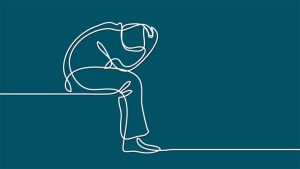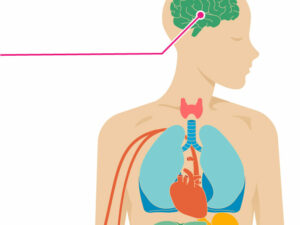It’s not uncommon for people to experience one or more of the following emotions: depression, anger, and anxiety. It can be hard to know what to do when these feelings start to take over. In this article, we’re going to talk about some ways that you can healthily deal with depression and anger.
Contents
What Is Depression?

When you experience depression, it is a feeling of sadness and emptiness that can interfere with your normal activities and everyday life. Depression can lead to feelings of hopelessness and helplessness, decreased motivation, difficulty concentrating, and low energy levels.
There is no single cause for depression, but it can be triggered by a variety of factors such as anxiety, relationship problems, financial difficulties, or physical illnesses. Many people experience depression for the first time during their teenage years or in their early twenties.
What Is Anger?
 Anger is an emotion that we feel when we are frustrated, upset, or angry with someone or something. It can be a solid feeling and can lead to different actions, including physical violence.
Anger is an emotion that we feel when we are frustrated, upset, or angry with someone or something. It can be a solid feeling and can lead to different actions, including physical violence.
There are different types of anger. There is emotional anger, which is when our emotions are stirred up and we become more likely to act impulsively. Also, There is also cognitive anger, which is when we become more critical and oppositional in our thoughts. Finally, there is behavioral anger, which is when we act out destructively.
There are many reasons why people might experience anger. Sometimes it can be a response to a situation that’s frustrating or upsetting. Other times it might be related to feelings of inadequacy or powerlessness. And sometimes it just comes out automatically without any reason at all.
Whatever the reason for our anger, it’s important to remember that it’s not always healthy or justified. Anger can lead to negative consequences for both ourselves and those around us, including damage to relationships, loss of jobs, and even physical violence. So if you’re feeling angry and you don’t know why it might be best to talk to a therapist or counselor about it.
Relationship Between Anger And Depression

Anger and depression are two common mental health conditions that are linked together. According to national reports, people with depression may experience increases in anger and hostility. Depression can also lead to feelings of hopelessness, which can in turn lead to increased anger and aggression.
There is no one-size-fits-all answer as to how anger and depression interact, but some things that may contribute to a relationship between the two conditions include genetics, environment, life experiences, and mental health disorders. It is essential to get help if you are experiencing either anger or depression to maintain a healthy balance in your life.
If you are feeling angry or aggressive more than usual, it is important to talk to your doctor or therapist about your concerns. They can help you figure out if there is a link between your anger and depression, and provide you with resources for managing both conditions effectively. Sometimes the best way to treat both anger and depression is to address the root cause of each issue.
Impacts of Depression and Anger
 Depression and anger are two of the most common mental health conditions in the world. They can have a huge impact on a person’s life, including their work and relationships. Here are some impacts of depression and anger:
Depression and anger are two of the most common mental health conditions in the world. They can have a huge impact on a person’s life, including their work and relationships. Here are some impacts of depression and anger:
Depression can lead to decreases in motivation, energy, and concentration. It can also make it difficult to enjoy life and make decisions. Depressed people may also be more likely to think about suicide or other negative outcomes.
Anger is associated with increased heart rates, blood pressure, and stress hormones. It can also lead to risky behaviors like smoking, drinking, or overeating. Angry people often lash out at others or themselves rather than address the issue that has caused their anger.
Also, another impact of depression and anger is that they can lead to an increased risk of developing other mental health conditions, such as anxiety or addiction.
Treatment of Depression and Anger

Treatment for depression and anger can vary based on the severity of the condition. Many people find that therapy, medication, and self-care work best for them. However, there are several other treatments available as well:
One popular treatment for depression and anger is cognitive therapy. This type of therapy helps people change their thinking patterns about the situation that is causing their depression. It also teaches them techniques for coping with difficult situations.
Medications can also help to treat depression and anger. The most common types of antidepressants are SSRIs (selective serotonin reuptake inhibitors). These medications work by increasing the amount of serotonin in the brain. Other medications that are used to treat depression include tricyclics (which act as blockers of serotonin), MAO inhibitors (monoamine oxidase inhibitors), and beta blockers (blockers of beta receptors).
While medication is an important part of treatment for depression and anger, it isn’t always necessary or effective. In some cases, cognitive therapy or other forms of counseling may be more effective than medication alone.
There are also many different types of self-care therapies that can help treat depression. These include activities such as exercise, yoga, and meditation. There are also self-help books and websites that can be helpful.
Overall, treatment for depression and other disorders depends on the individual’s symptoms and needs. Many people find that a combination of therapies is most effective.
Conclusion
If you are experiencing depression or anger, there are some things that you can do to get help. Speak with a therapist or another mental health professional who can provide guidance and support. Consider seeking out medication if your symptoms persist despite self-help efforts. And remember: it is never too late to seek treatment for either condition.
Hope this article was of help to you! If you are suffering from depression and anger, you may seek help from Therapy Mantra. We have a team of highly trained and experienced therapists who can provide you with the tools and skills necessary for overcoming depression and anger. Contact us today to schedule an online therapy or download our free Android or iOS app for more information.


